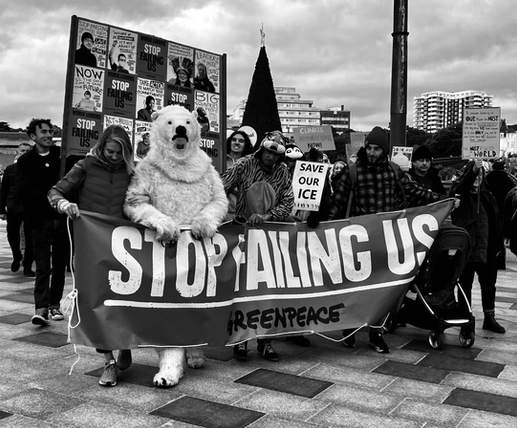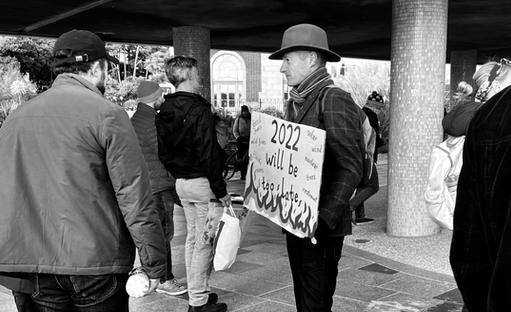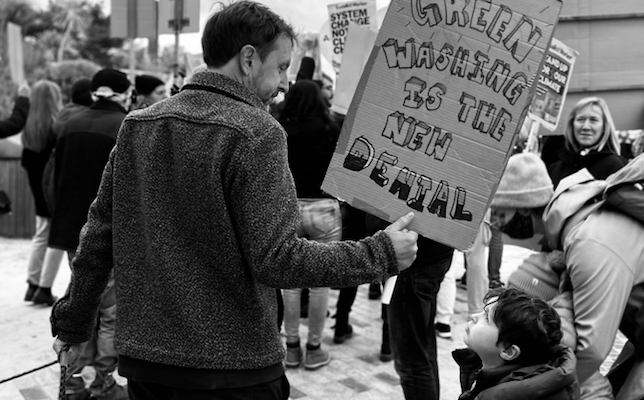Considering the recent COP26 meeting in Scotland all UK Supermarkets have been asked to achieve net zero carbon emissions by 2050. This may seem far away but sustainability experts are urging that we take action now, globally to save our planet for future generations.
UK supermarkets have a big impact on our sustainability rating. Emissions within the supply chain make up a third of our carbon footprint.
In light of this, supermarkets have been adjusting their operations to meet new climate change goals. Many supermarkets have brought their year goal forward, promising to reduce carbon emissions, food waste and packaging.
The British Retail Consortium (BRC), a trade association for retail businesses in the United Kingdom, has partnered with many of the major supermarkets to produce a roadmap to net zero. Sophie DeSalis, Communications Executive at the BRC said: “The target is 2040 completely, but within that we have early milestones with our signatories, with our plan split into pathways because they’re all at different stages.”
There are five pathways which the BRC have identified to decarbonise operations. These include the use of technology and data to optimise operations as well as sustainable logistics and sourcing.
DeSalis claims the biggest issues in supermarkets relate to the supply chain which sits with pathway three, low carbon logistics.
“The supermarkets are the face, but behind that you’ve got the producers, the people transporting it, the packaging. So that’s where there’s a huge amount of emissions being produced. It’s about collaborating with the best suppliers, and making sure that the suppliers, suppliers are committing to these standards. Ensuring that it’s broken down and it’s net zero.”
Greenwashing
These plans seem positive, however Greenpeace has accused many major supermarkets of greenwashing their campaigns.
Although, in September this year the governed Competition and Markets Authority (CMA) published the ‘Green Claims Code’ which prevented companies from greenwashing campaigns. DeSalis said: “There’s a huge effort not to greenwash and a commitment by our supermarkets to get to net zero and join the sustainable journey.”
Going as far as accusing the supermarkets of greenwashing, Heather McKay, is a policy advisor from Third Generation Environmentalism, also known as E3G, a climate change think tank operating to accelerate a global transition to a low-carbon future. She believes that supermarkets are not doing enough stating that supermarkets are “huge sources of not only emissions in terms of growth, but also food waste.”
She added: “Food waste has climatic impact, but also environmental impact, too. Any company that has made a net zero commitment and hasn’t started to act on that is quite right to accuse them of greenwashing.”
The Climate Marches
COP26 conference marches have been taking place all over the country to raise awareness on climate change. Many activists at the Global Day For Climate Justice rally in Dorset in November spoke about what they think supermarkets should do in aid of climate sustainability.

Environmental activist, Joey Ellis from Essex, thinks that greenwashing is still seen in supermarket campaigns. “I feel supermarkets are only now trying to make a change due to the pressure from consumers and governments. It’s such a trending topic to be sustainable and care about the environment so it’s not surprising that now they suddenly care.”
Consumer role
Michael French from Grounded Community, a charity who redistribute food surplus from supermarkets for the community in need was also at the march. He believes that it’s not down to the supermarkets but to the consumer. He believes there should be a change in consumer habits, he said:
“Supermarkets existence is part of the problem but that’s our doing, we’ve chosen to shop like that. I don’t really think the conclusions lie in their decisions they lie in our decisions of where we shop. They will bend to what the consumer wants.”
McKay also thinks that consumers have a vital role in aiding the earth to net zero.
“Companies and politicians answer to us. Consumers can make it very clear through their purchasing power, what products and expectations they have from supermarkets. Where possible, I think people should be making more climate friendly choices with their spending. Consumers should be eating less meat if possible.”
Ethical options
DeSalis believes it’s mainly down to supermarkets to make a change for the consumer to be on board. Futera, an international sustainability strategy and creative agency, stated in their survey that 88% of consumers want to make better choices in aid of the environment but 40% think that these sustainable choices are too expensive.
Supermarkets in the UK have increased their availability of vegan options in their stores with Iceland reporting that their sales of plant-based food has gone up 10% since last year. Yet McKay still believes there is more room for growth in the plant based dietary choice. “I haven’t seen that same level of product availability in the UK versus in other countries I’ve been to. I think that supermarkets and consumers can work together to bring out new products to demonstrate demand”
Barney, an environmental activist from Bournemouth thinks that foods should be signposted with information stating their effects on the environment. He said: “How about a climate traffic light system to say that this is red meat, it came from South America, an area which has been deforested to produce grazing grounds. Therefore, this is red.”
The idea of signposting foods has been a popular demand from consumers. This would be a large-scale initiative for supermarkets to uphold but a very welcomed one. DeSalis from the BRC concluded that this is something to come, “Obviously, that’s not possible for now, but maybe in the future that could happen.”

There are clearly steps towards saving the planet for future generations. However will this be enough to really make a difference? As Greta Thunberg said: “The eyes of all future generations are upon you, and if you choose to fail us, I say, we will never forgive you.”
More content:
How to reduce your carbon footprint


 The artist taking over Bournemouth’s street art scene
The artist taking over Bournemouth’s street art scene